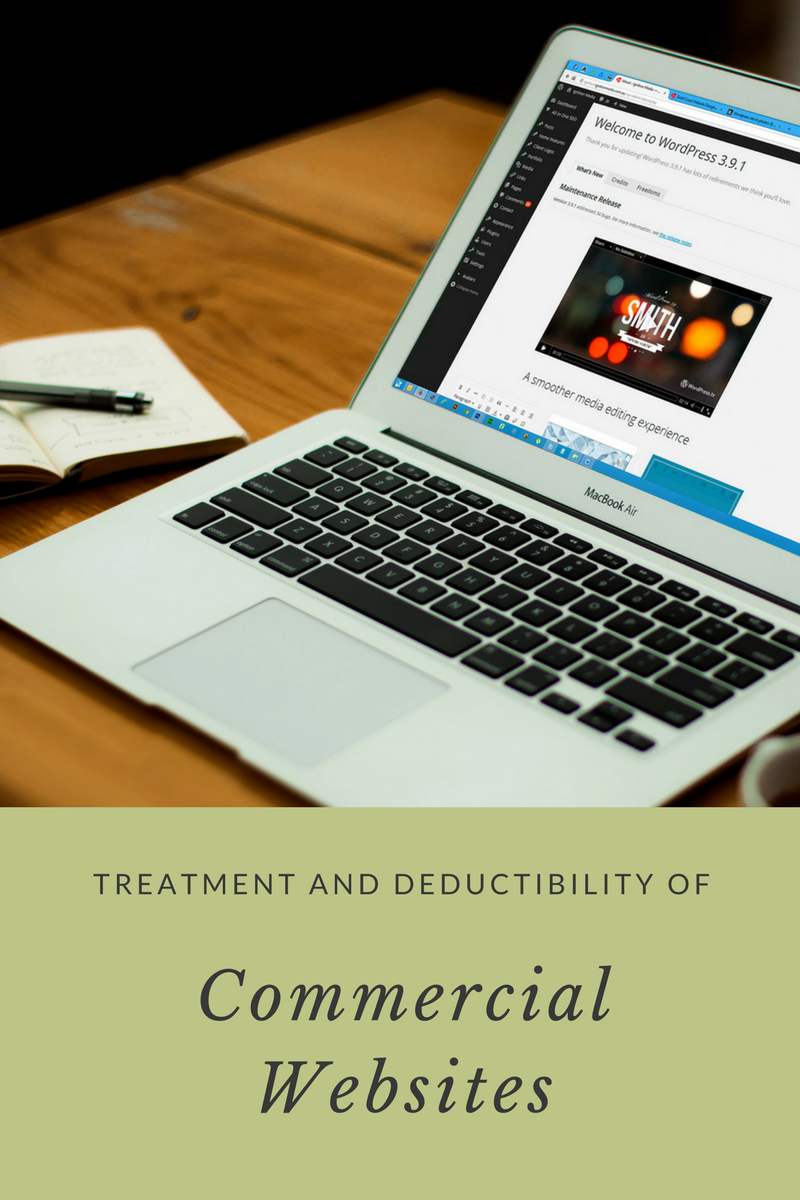
It is essential these days for a business to have a website to promote their products or services. Left without guidance following the withdrawal of TR 2001/6 in 2009, business owners have treated website expenditure in many different ways. At least, this was the case until recently. The Australian Taxation Office have now issued ruling TR 2016/3 stating their guidelines on the deductibility of website expenditure.
Generally, expenditure acquiring or developing a website for a business is capital in nature. This means the website is a depreciating asset, classified as software, and can be depreciated and commonly claimed over a period of 5 years. For Small Business Entities under the Simplified Depreciation rules, if the cost is under the threshold, the cost can be claimed in full. If the cost is more than this threshold then the expense is allocated to the General Small Business Pool and depreciated as such. The threshold till the 30 June 2017 is $20,000 and will then return to $1,000.
However, the rules differ if there is an existing Software Development Pool. If the entity uses a Software Development Pool the expenditure must be allocated to this pool, and the Simplified Depreciation rules cannot be used.
Expenditure in maintaining a website can normally be claimed as a deduction. This will involve expenses such as domain registration, server hosting costs and minor enhancements to the existing website. However, if the alteration to the website is significant, it is open to question that the business is improved and the expenditure is likely to be capital in nature. In this case, the expenditure is not deductible but can be depreciated over a period of time.
Determining Capital vs Revenue
| Capital | Revenue |
| Expenditure incurred in acquiring or developing a commercial website for a new or existing business. | |
| Expenditure on a website where the expenditure represents an improvement to the business and structure. | |
| Labour costs directly referable to the enhancement. | Labour costs incurred as ordinary business expense that doesn’t enhance the business and structure. |
| Expenditure on software products that provide an enhancement of the structure of the business. This may be depreciable as ‘in-house software’. | Software products expenses that are licensed periodically. |
| Expenditure for new functionality to a website or upgrade existing functionality of website that adds to the business. | Periodic lease payments if a commercial website is leased from a web developer. |
| Expenditure incurred to migrate content from old to new website or platform as part of an upgrade. | Expenditure for maintaining a website ie periodic operating, registration, web hosting and licensing fees. |
| Expenditure to secure the right to use a domain name. | Periodic registration fees for a domain name including initial registration fee. |
